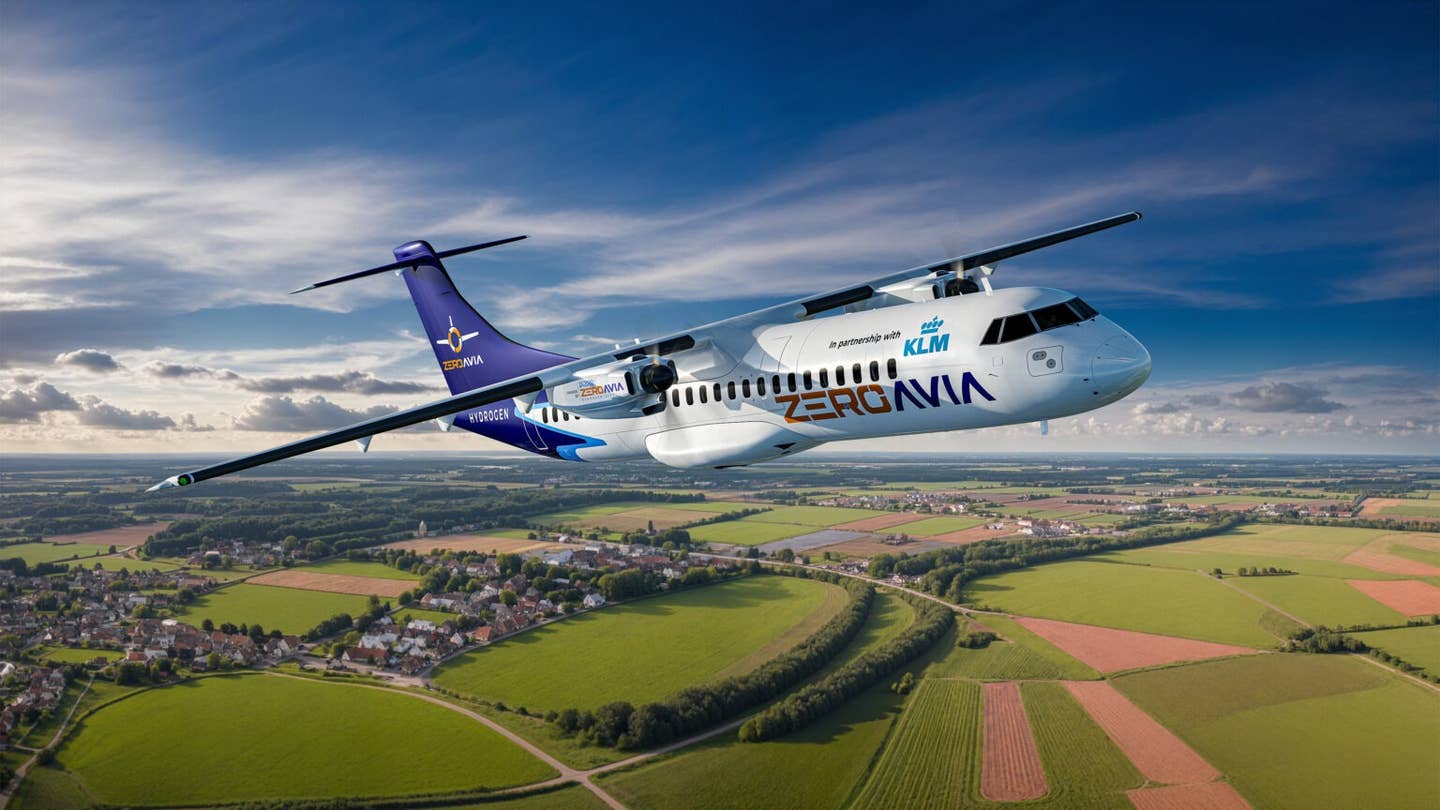Lilium Begins Fuselage Assembly for Type Certification of eVTOL
The air taxi manufacturer started construction of the first of seven fuselages for the aircraft it will use to achieve EASA design approval.

A Lilium Jet prototype conducts flight testing in the Spanish countryside. [Courtesy: Lilium]
German electric vertical takeoff and landing (eVTOL) aircraft manufacturer Lilium continues to gear up for a global commercial launch by 2026.
The company on Tuesday announced it began assembling the first of seven fuselages to be installed on eVTOL prototypes the company will use to seek European Union Aviation Safety Agency (EASA) type certification for its seven-seater Lilium Jet.
The fuselage is expected to be delivered to Lilium’s facility in Wessling, Germany, during the fourth quarter, with assembly of the first Lilium Jet beginning by year’s end. The company said the milestone keeps it “on track” for the first manned flights of the prototype, planned for late 2024. EASA design approval for the Lilium Jet is expected to follow in 2025.
“This phase is more than just a technical step—it's a clear signal to all Lilium stakeholders of our commitment to making regional air mobility more efficient, enjoyable, and sustainable,” said Klaus Roewe, CEO of Lilium. “As we assemble the fuselage, we are also crafting a transformative flying experience while upholding our promise of unparalleled efficiency, comfort, and safety.”
The fuselage will be built by Lilium’s partner, Aciturri, at its manufacturing facility in Valladolid, Spain. The tier 1 aerospace supplier also codeveloped the design and conducted an industrial program review with Lilium in August to greenlight production.
Aciturri has nearly half a century of experience designing and manufacturing airframe components for designs from companies including Airbus, Boeing, and Embraer. The company will continue to support Lilium Jet’s design optimization and certification in the coming years.
“We see this as further evidence that our approach of teaming with proven aerospace suppliers to bring our cutting-edge eVTOL aircraft to market is the optimal strategy as we advance along a path to certification and entry into service of the Lilium Jet,” said Yves Yemsi, chief operating officer of Lilium.
As for the path Yemsi alluded to, Lilium in June said its EASA type certification is on track for late 2025, with first aircraft deliveries expected under EASA and FAA approval by 2026. Also in June, it became the first eVTOL manufacturer to receive certification bases on both sides of the Atlantic when it secured an FAA G-1. The plan is to obtain dual certification through the Bilateral Aviation Safety Agreement between the two regulators.
On the EASA side, Lilium received its CRI-A01 certification basis in 2020. It submitted a means of compliance proposal outlining how it will adhere to those requirements in April 2022—about 80 percent of those provisions were approved by EASA, according to a company update in July.
That update also revealed that the company has entered the final stage of the EASA design organization approval (DOA) process. A DOA provides proof that a company is capable of designing a type-conforming aircraft and allows it to begin undertaking design activities—like the assembly of the fuselage. The approval is also a necessary precursor to type certification.
The aircraft Lilium will be certifying is a fixed-wing design powered by 36 electric ducted fans embedded in the wings. Most companies instead rely on tilt rotors or sets of forward and vertical thrust propellers. But the German firm’s design combines fixed wings with high disc loading, sacrificing hover efficiency in exchange for a lower noise profile and better cruise efficiency. This is by design—the Jet is expected to spend about 95 percent of its time in winged cruise.
Designed to carry a pilot and six passengers, the aircraft will fly air taxi routes that ferry passengers between towns and inner cities on 25 to 125 sm (22 to 109 nm) trips, cruising at 186 mph (162 knots).
Lilium already has received a handful of massive purchase orders (by eVTOL standards) for its design. Those include a $1 billion deal with Brazilian airline Azul for 220 aircraft and an order of 150 from fractional airline ownership company NetJets.
Saudia, the national airline of Saudi Arabia, and Chinese general aviation transport firm Heli-Eastern also agreed to purchase 100 Lilium Jets each, while aircraft operators Bristow Group and ASL combined for a total of 56. Lilium is also planning an eVTOL vertiport for Orlando, expected to be its first such site in the U.S.
The German firm is one of the most well-backed eVTOL manufacturers in the business, having accrued nearly $1.34 billion in investments per SMG Consulting’s Advanced Air Mobility (AAM) Reality Index. The most recent were a pair of capital raises for a total of $292 million, though these followed reports earlier this year that the company was cash-strapped.
U.S. rivals Joby Aviation and Archer Aviation, meanwhile, have each received the green light to begin initial flight testing on their preproduction prototypes. Both companies are eyeing 2025 entries into service with air taxi routes in major U.S. cities. Across the Atlantic, another German manufacturer, Volocopter, is expected to launch commercially in Paris next year following the 2024 Olympic Games.
Like this story? We think you'll also like the Future of FLYING newsletter sent every Thursday afternoon. Sign up now.

Subscribe to Our Newsletter
Get the latest FLYING stories delivered directly to your inbox






